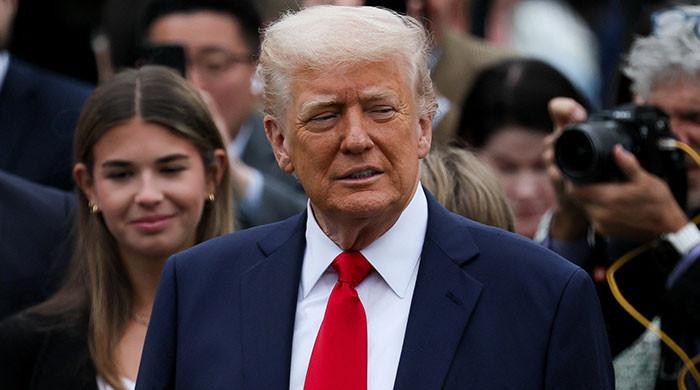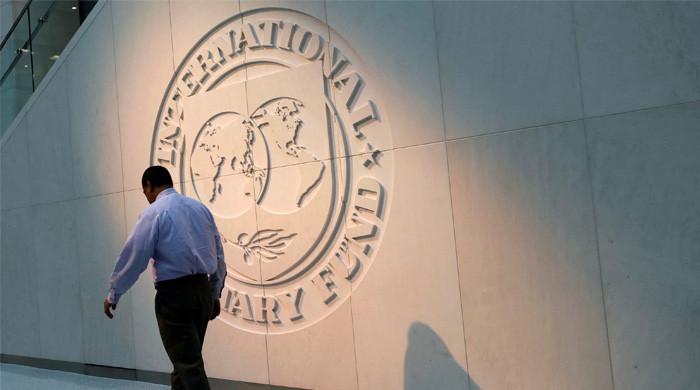Pakistan on repeat
State should not castigate university students for being inspired by the idea of an equal world
November 23, 2019
The Faiz Festival last week brimmed with the vigoor of our tenacious youth. The setting was perfect. Faiz’s revolutionary poetry reverberated across the Alhamra compound during the beautiful November weekend in Lahore.
The best part about the crowd was that it was predominantly young, curious and engaging. The crowd’s audacity of hope was discernible and its resolve to not accept the status quo as fait accompli was unmistakable. The last time I witnessed such interest in ideas and commitment to idealism was during the lawyers’ movement.
I was asked to participate in a session scheduled to discuss Zafar Ullah Poshni’s ‘Prison Interlude: the last eyewitness account of the Rawalpindi Conspiracy Case’. As a student of politics and law, one had heard references to the case that landed Faiz Ahmad Faiz and Sajjad Zaheer (the Communist Party’s secretary general) in jail, along with General Akbar and ten other military men, including Captain Poshni. The book was a page-turner. Poshni’s style has made a mockery of the state’s neurosis about the threat its citizens pose to its security.
The takeaway from reading in 2019 an account of the Rawalpindi Conspiracy case that transpired in 1951 was that ‘the more things change, the more they stay the same’. If there was a lingering doubt that such lesson was informed by a cynical mind, it was quickly laid to rest by the anti-state badge of honour bestowed on Arooj Aurangzeb and her feisty friends who were seen in a viral video spiritedly singing “sarfaroshi ki tamanaa ab hamaray dil mai hai.” When it is not hilarious how insecure the state that lords over us is, it’s actually really sad.
Poshni’s account from 1951 and the treatment meted to Arooj Aurangzeb in 2019 confirm that Pakistan is caught in a time warp. We are witnessing a soap opera on repeat. The heroes, villains and supporting cast all have a Shakespearean sense to them: they are everlasting. Who’s a hero and who’s a villain is for you to decide, according to your own predisposition. But the Rawalpindi Conspiracy case could easily have played out in 2019 and Arooj Aurangzeb could equally be projected as the sponsored enemy agent back in 1951 for her ‘sarfaroshi’.
The storyline of the Rawalpindi Conspiracy was simple. General Akbar, who led the charge in the limited fight for Kashmir in 1949 didn’t think much of the civilian or military leadership at the time and thought it was essential to overthrow Liaquat Ali Khan’s government. His proposal was to arrest governor general Nazimuddin and the PM, persuade the governor general to oust the PM and his government, assume direct control of the state, hold elections at some point and steer the country in the right direction.
At the time, the government was suspicious of communists and allowed them no political space. Out of desperation, they got interested in hearing what General Akbar had to propose. He presented his proposal in a meeting attended by Faiz and Sajjad Zaheer and other military officers. The audience quizzed him, decided that the idea wasn’t feasible, and dispersed. Two of the attendees reported the meeting and became approvers. General Akbar and participants of the meeting were arrested and tried for conspiracy to wage war on the state.
Poshni reveals that the conspirators didn’t really know one another and there was no agreement amongst them to conspire to overthrow the government as proposed by General Akbar. But that minor detail wasn’t going to dissuade the state, which needed to see folks made an example of for hearing a dangerous idea. But what is more interesting is that the instincts of the state (and the society it was propping up) weren’t different from what we see today. Let’s start with General Akbar. He might have been the first one to conceive of martial law in Pakistan.
He was cut up about Pakistan’s impotence in relation to Kashmir and wanted to introduce land reforms, end the scourge of nepotism and eradicate corruption. Is it not interesting that the issues that our right-wing revolutionaries are still fired up about inspired a proposal to overthrow the civilian government by force as early as 1951? The plan didn’t go anywhere of course. The conspiracy might have been minted as a revolution even in 1951 if the top general as opposed to a second-tier general had conceived the plan, as happened in 1958, 1977 and 1999.
But we find that when the wrong folks come up with what subsequently comes to be seen as necessity, the state is swift to act. Our Constituent Assembly at the time did many things other than what it was conceived to do ie putting together a constitution. One was to act with alacrity to promulgate the Rawalpindi Conspiracy (Special Tribunal) Act, 1951 for the sole purpose of trying 15 individuals charged with the Rawalpindi conspiracy. Under this law, three high court judges were given the task of trying the conspirators in Hyderabad Jail.
This law said that judges could suo motu add charges against the accused upon appraisal of evidence even if the accused had not been asked to answer to them. The proceedings were not open to public, and their details couldn’t be revealed by anyone as the law applied the Official Secrets Act to them. Statements of the police were admissible in evidence (just as they are under the Action in Aid of Civilian Power laws presently under challenge in the Supreme Court). There was no right of appeal for convicts or to even get a copy of the judgment convicting them.
So our penchant for special courts to produce desirable results in matters where the state has an interest in dates back to 1951 at least. So does our commitment to secrecy, our belief that disclosure of information can pose serious danger to the state and that due process is not a right but a luxury not to be afforded to anti-state elements. The class system existed in prisons as it does today. Everyone was at prison officials’ mercy. But C-Class prisoners were in a terrible state. (Maybe Poshni’s account inspired our PM to eliminate A and B classes for those NAB-ed.)
Public sentiment in response to outrage by the state wasn’t equally effective back then. Poshni tells us that many believed that the accused were traitors who deserved to be executed without trial to make them an example that would deter other miscreants. Disdain for civilian rule existed even back then. One of the accused, Major Hasan Khan, is quoted as saying in a heated debate while in jail: “I favour military rule…I will always attempt to establish a military dictatorship in Pakistan.” At least his wishes later came true.
In 1951, Faiz was seen as a threat and in 2019 Arooj Aurangzeb singing Faiz’s poetry is seen as a threat. It seems almost lost on the state that we will remain stuck in this soap opera on repeat unless we allow folks to come up with new story lines. The purpose of education is to create thinking minds, to investigate reality, as it exists, to question and critique assumptions underlying sustenance of such reality with a view to changing it for the better. And here we are castigating university students for being inspired by the idea of an equal world.
There is consensus across Pakistan that things aren’t as they should be. That we haven’t created a polity that treats citizens fairly or dispenses justice to haves and have-nots alike. That our people have tremendous potential that remains locked up. And yet we are terrified of our youth getting together over a weekend signing poems and rehashing old ideas. The parents of Arooj Aurangzeb and her fellows seen in the video should be proud of themselves for raising children who refuse to yield to the shackles designed to stifle critical thought.
The writer is a lawyer based in Islamabad.
Email: [email protected]
Originally published in The News











